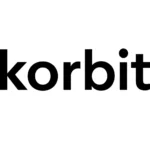Samsung SDI reported a revenue of KRW 4.45 trillion (US$3.47 billion) for Q2 2024, a 24% decrease year-over-year and 13% drop quarter-over-quarter. The operating profit stood at KRW 280.2 billion (US$218 million), marking a 38% decline from the previous year but a 5% increase from the previous quarter.
The energy business generated KRW 3.87 trillion (US$3.02 billion), a 27% year-over-year decrease. Operating profit fell by 46% to KRW 208 billion (US$162 million), with a margin of 5.4%. Sluggish demand in the automotive and ESS sectors was partially offset by strong sales in the energy storage system (ESS) unit, driven by high-power products and the Samsung Battery Box (SBB).
Conversely, the Electronic Materials segment reported a modest revenue increase of 1% year-over-year to KRW 577.2 billion (US$451 million). Operating profit rose to KRW 72.2 billion (US$56 million), a 16% year-over-year increase, supported by robust sales of semiconductor materials and OLED products.
Looking ahead, Samsung SDI expects gradual recovery in the EV market by Q4 2024, with continued strength in ESS sales. The company is advancing its all solid-state battery (ASB) and LFP battery projects, aiming for commercial production in 2026. A significant ESS project win in the US bolsters its position in the renewable energy sector.
The Small Battery Business will focus on expanding into new markets, while the Electronic Materials segment aims to leverage the recovering memory chip market and increase OLED material supplies.
Samsung SDI’s recent Sustainability Report 2024 highlights its commitment to renewable energy transition, greenhouse gas reduction, and supply chain sustainability. The company aims to enhance future growth by maximizing revenue, driving cost innovation, and acquiring new technologies, positioning itself to capitalize on market recovery.
As CEO Yoon-ho Choi remarked, “The challenging conditions may become an opportunity for Samsung SDI to gain a competitive edge and capture new opportunities as the market turns around.”




